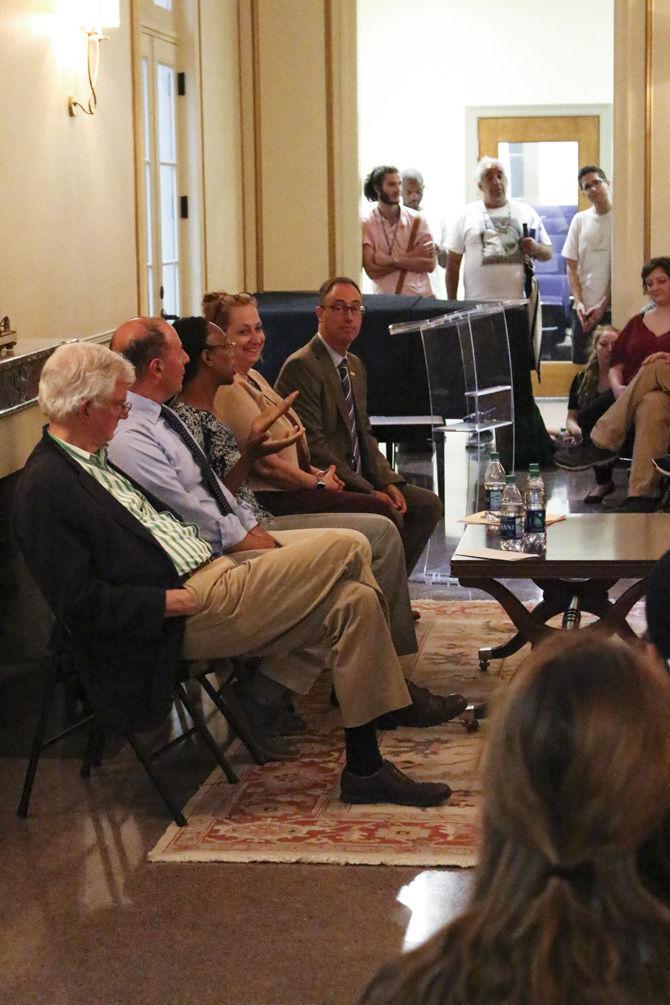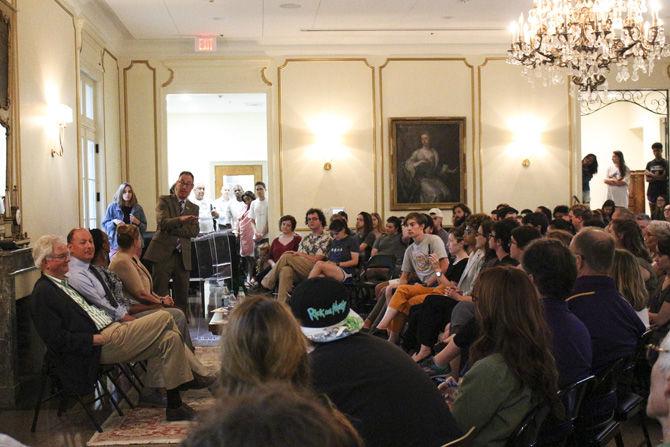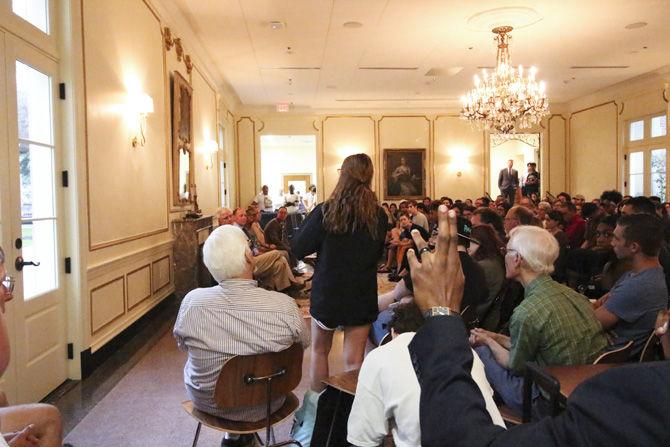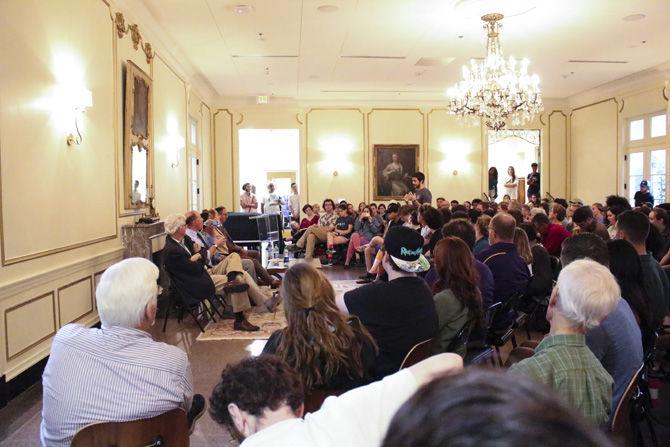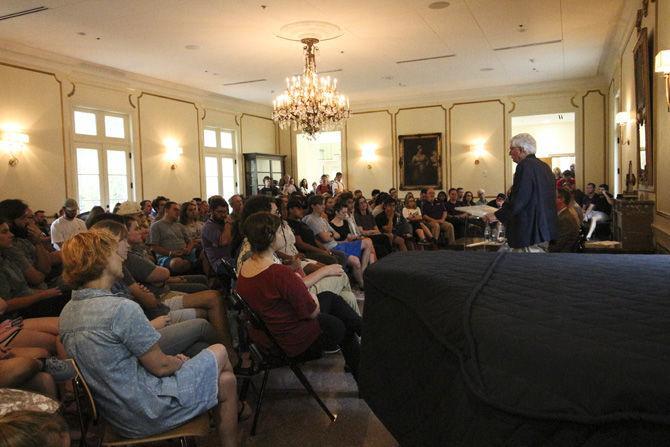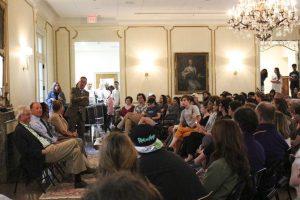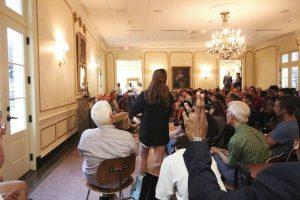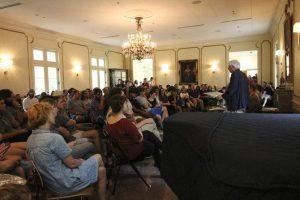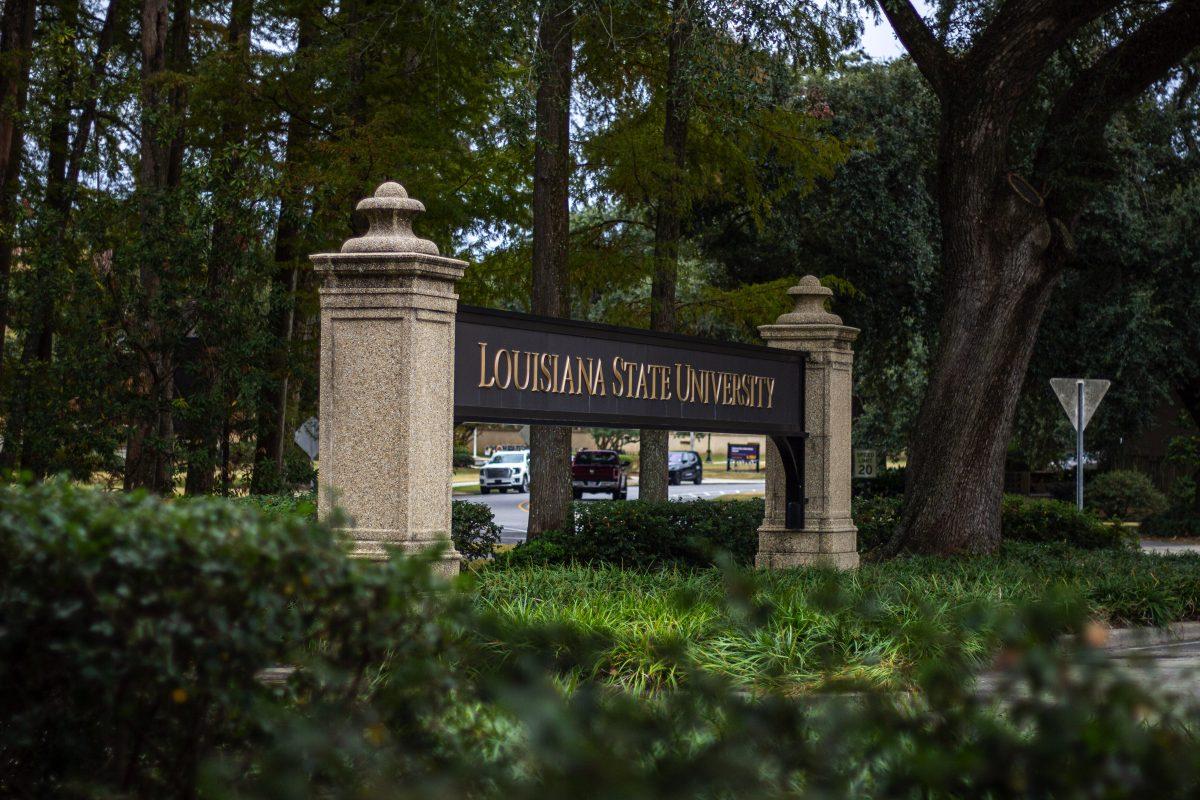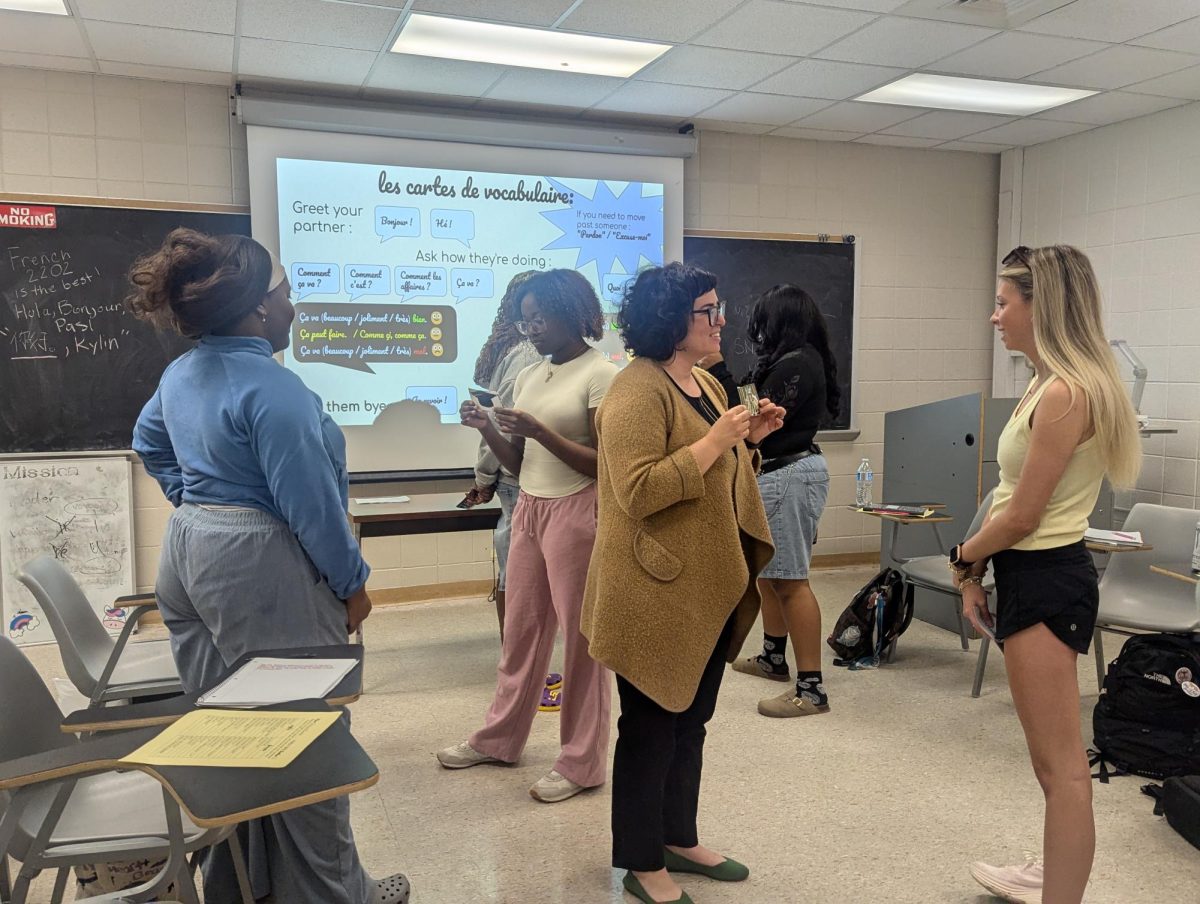In light of the events that unfolded in Charlottesville, Virginia, on Aug. 12, the Roger Hadfield Ogden Honors College hosted a panel discussion titled “Why Are We Still Fighting the Civil War?: A Conversation on Memory, Commemoration and the Fractured Present” on Aug. 24.
Honors College Dean Jonathan Earle began the panel discussion by emphasizing why he felt this event was important to host on the University’s campus.
“I believe we would be ducking our obligation as an honors college, as a university, as faculty, as members of a community,” Earle said, “if we settled into this semester without having a serious and open, and maybe even difficult, conversation about these recent developments in our community and in our country.”
The panel was lead by Earle, Paul and Nancy Murrill Professor of History Alecia Long, Associate Professor of Sociology Lori Martin, Fred C. Frey Professor Aaron Sheehan-Dean, and LSU Foundation M.J. Foster Professor of History Gaines M. Foster.
After Earle’s opening remarks to the full Sternberg Salon in the French House, each panel member individually discussed their thoughts on the Charlottesville protests, neo-Nazis and the ongoing dialogue about race.
Long’s remarks resembled comments similar to those of corporate executives who stepped down from President Donald Trump’s advisory committees after Trump’s statements on the Charlottesville events, one of which argued that neo-Nazis in Charlottesville’s ideologies were in direct opposition with American values. These values, Long said, are “diversity, inclusion, tolerance and a firm belief in the basic equality of persons.”
One of the tenants of Martin’s discussions was how we, as a society, should memorialize all parts of history. Martin mentioned her support for the Toni Morrison Society’s “Bench By the Road” project, which establishes memorials for people to reflect on important moments in African American history.
Sheehan-Dean said Confederate monuments are not primarily teachers of history and should not be referred to as such.
“Most of the Confederate monuments of the south are part of a very oppressive landscape … Confederate monuments celebrate a lost cause dedicated to preserving a slave republic, and they are reminders of that effort,” Sheehan-Dean said. “They were not erected to teach history. That is not what monuments do.”
In an attempt to contextualize the conversation, Foster gave a brief history on when the debate over Confederate flags and monuments began and explained the deeper partisan divide over this issue.
“Even if the monuments come down, it makes it too easy for us to say ‘we’ve solved the problem of racism,’” Foster said. “If you take the monuments down, that doesn’t address the structural problems…That’s equally important.”


